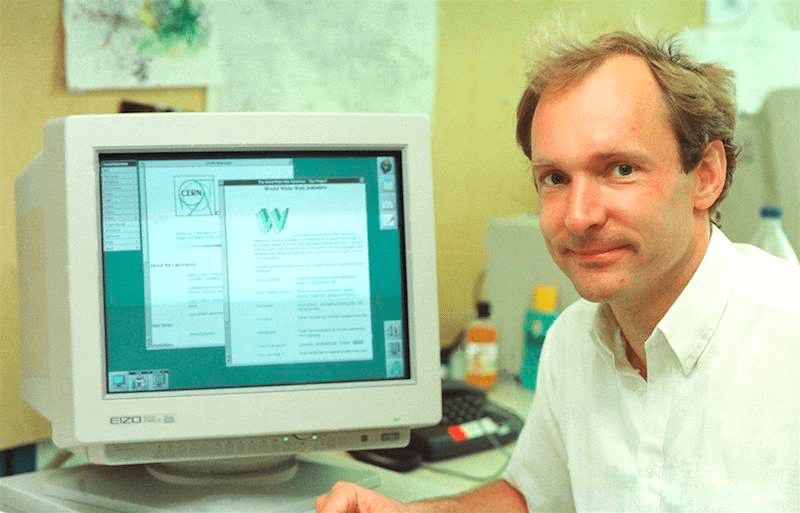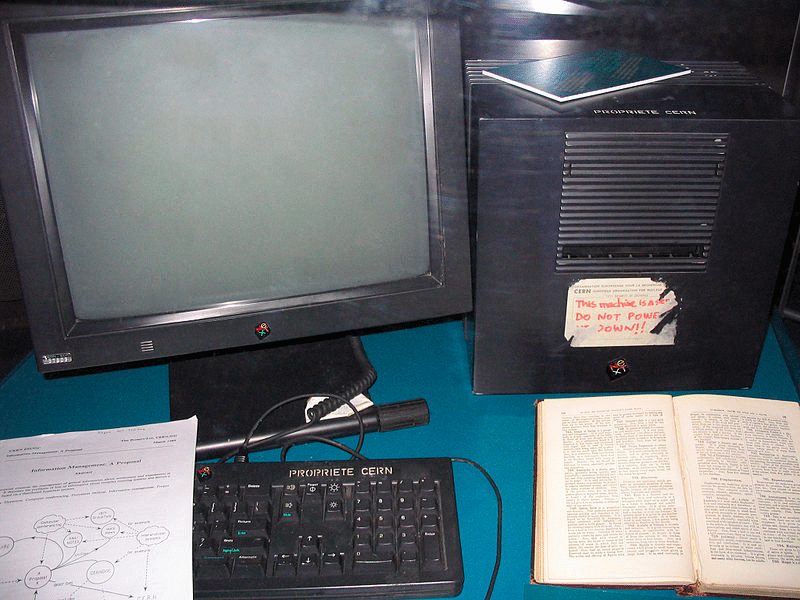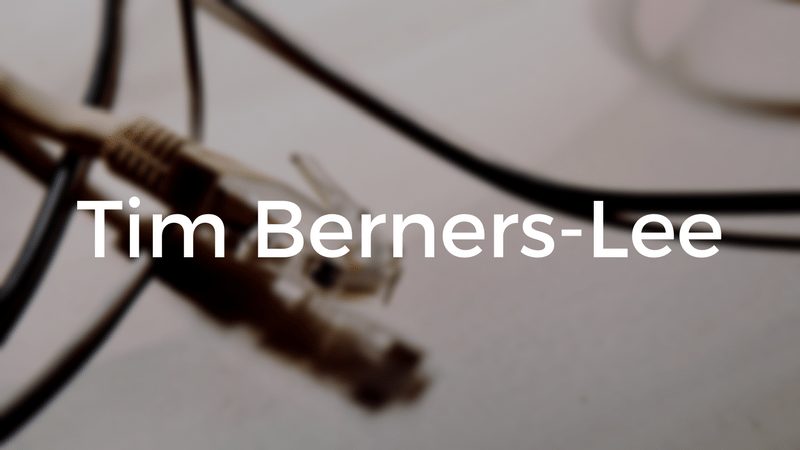Tim Berners-Lee
Episode #2 of the course Inventors who changed the world
One technological innovation has had the greatest impact on the largest number of human beings in the past 28 years. You might be doing something else right now (like getting some exercise) if not for the World Wide Web and its creative inventor, Tim Berners-Lee.
Berners-Lee did not invent the internet, a global network of other computer networks that has been growing and evolving since the 1960s. The World Wide Web is a service running on the internet, accessed using web browsers, which has made the internet the force in our lives that it is today.
 Tim Berners-Lee, 1994
Tim Berners-Lee, 1994
Before Berners-Lee invented the Web in 1989, the only applications for the internet were email and file transfer using FTP. The essential innovation provided by the World Wide Web is the ability for any user to call up any other user’s “webpage” (an idea invented by Berners-Lee). As Berners-Lee described it in a 2012 Scientific American interview, the Web is an open marketplace for the free exchange of information.
 This NeXT Computer was used by Berners-Lee at CERN and became the world’s first web server.
This NeXT Computer was used by Berners-Lee at CERN and became the world’s first web server.
Berners-Lee also invented domain names, URLs, HyperText Transfer Protocol (HTTP), and HyperText Markup Language (HTML)—all essential elements of the web. Interestingly, his first browser and original vision for the Web was different from the way most people used it during the ‘90s; his original browser was simultaneously a webpage editor. Berners-Lee expected users to share information by editing webpages when visiting them. Perhaps most people still use the web mainly to consume media. But now Berners-Lee’s original vision is becoming truer as social media services, blogs, wikis, and other services now make user-created internet content increasingly common.
Berners-Lee invented the Web in order to solve an information-sharing and collaboration problem among scientists. He was working at CERN, the physics laboratory in Geneva best known now for its Large Hadron Collider—the particle accelerator that discovered the Higgs boson (and threatened to destroy the world, according to some). CERN was already (in the 1980s) the largest center for international collaboration in physics in the world; physicists from numerous nations were constantly coming and going to collaborate in the analysis of CERN data. But in order to share data, scientists could only write each other emails and download files to read or analyze on their own computers. There was a need for a more communal and easier way to share data and papers about experiments.
 Tim Berners-Lee, 2014
Tim Berners-Lee, 2014
In 1980, Berners-Lee created a system called ENQUIRE at CERN—a database of linked pages using hypertext. During the ‘80s, the CERN network was upgraded and became the largest internet hub in Europe; it was large enough to support something like the World Wide Web. Berners-Lee wrote a proposal for it in 1989, and thanks to the support of Robert Cailliau at CERN, it was up and running in 1990. The first web address was http://info.cern.ch/hypertext/WWW/TheProject.html, but the original page that was there has been lost.
From the beginning, Berners-Lee has fought for net neutrality, privacy, freedom, and “network human rights.” He opposes governments and corporations recording users’ activities without their consent and advocates an open web for the public good as a basic human right. As head of both the World Wide Web Consortium (W3C) and the World Wide Web Foundation, he is active in trying to bring the web to more of the developing world.
Berners-Lee has won many prizes for his work, most recently the Alan M. Turing Prize, the “Nobel” prize of computer science. However, despite his great talent, Berners-Lee admits that the double slash “//” at the beginning of web addresses was completely unnecessary!
In our next lesson, you’ll learn about Fritz Haber, who helped feed the world but also developed the first chemical weapon used in warfare.
Quotes
“I found myself answering the same questions asked frequently of me by different people. It would be so much easier if everyone could just read my database.” — Tim Berners-Lee
“The Web does not just connect machines, it connects people.” — Tim Berners-Lee
“Innovation is serendipity, so you don’t know what people will make.” — Tim Berners-Lee
“The goal of the Web is to serve humanity. We build it now so that those who come to it later will be able to create things that we cannot ourselves imagine.” — Tim Berners-Lee
Recommended book
Where Wizards Stay Up Late: The Origins Of The Internet by Katie Hafner
Share with friends

